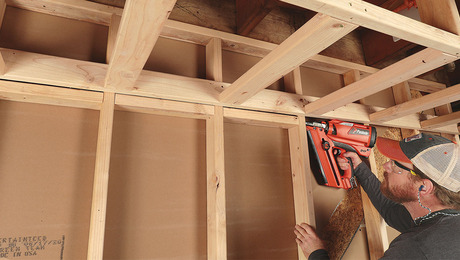Residential electric versus gas heating & cooling
I see where Denver, CO is looking to limit new gas connections for homes.
https://denverite.com/2021/01/26/denver-aims-to-ban-natural-gas-from-the-menu-of-energy-options-for-new-homes-and-buildings/
I have a home near there and my ducted gas furnace (a cheap furnace that is 20 years old) is at or nearing the end of its useful life. I currently do not have central A/C but would like to add it. I always thought electric heat pumps could not compete with gas furnaces for efficiency and economy in this area but I am wondering if that has changed. I would certainly consider going with electric if it makes sense financially. If anyone has any useful information on the comparison between these two I would greatly appreciate it. Thank you


















Replies
A dozen years ago it was time for us to replace the furnace and AC.
I started with a manual J calculation for the house to identify the actual heating and cooling needs, and from there looked at various options for heating and cooling equipment, from the cheapest gas furnace I could find to a half dozen wells dug into the earth with a ground source heat pump.
For my house, 2700 square feet two story and basement, the analysis indicated I would need around 65,000 BTU to heat the house on a -5 degree day, and 27,000BTU to cool from 100 degrees. I also figured if I added insulation to the attic and basement, I could get the need down to 55,000 btu heating and 25,000 btu cooling.
I was able to get actual installation quotes for a few options and, with a calculated 10 year utility cost projection for each, made a comparison.
You can get local costs for gas and for electricity, but really have to guess a bit on future costs.
The operating costs over a time period you choose is, of course dependent on the weather, so to make your own cost comparison, you have to learn how to figure in degree days of heating and cooling and crank that into the calculation.
With the cost per KWH or per CCF, you have to figure energy content, wrap in efficiency, and look at the details.
with the current prices for electricity and for gas, it is likely not going to add up to electricity being cheaper today.
Thank you for your comment. Coincidently my house is also 2 stories w/basement and 2650 square feet total.
Thank you. Without doing the calcs, I've always thought that gas is going to be cheaper. Here in California, it looks like the government is going to basically add another hidden tax to what they already are charging us by "forcing" us to use electric. I still wonder where the electricity is going to come from on our cold rainy days like this week. Food for thought.
Yeah, wind and solar won't work too well on a cold, still night! Nuclear power is the answer for greenhouse-free, safe, reliable power that can be expensive. Shutting down working nuclear plants is nuts.
Here's another radical thought. After wind and solar install costs have been recovered, maybe the selling cost should be significantly reduced seeing as how its free power.
Of course, a straight economic analysis does not really include the impacts of carbon emissions over time. In the Denver area, there are also weather patterns that make the impact of even natural gas home heating to the air quality worth consideration.
the electric you mention- is that straight resistant heat or heaT PUMPS TOO?
I was just thinking of heat pumps since they can also include a cooling capability. I wouldn't imagine plain old resistance heat like electric baseboards would be economical at all. I live in a ski resort town and when I see condos for sale they often have been built in the '70's and have electric baseboard heat. I imagine this was done to save on construction cost at the expensive of usage efficiency.
We live in the area. 1970s 2200 sq ft ranch with an 800 sq ft unfinished basement. 4 Ton, 16 Seer, 8.5 HSPF heat pump that keeps our house comfortable down to 36F outside. Below that the aux gas furnace takes over. Insulation is average aside from being air sealed to 3.2 ACH and R56 in the attic. Brass tacks, its a little more expensive using the heat pump below 42F. But, solar was cheap. 100% offset of an entirely electrified home and a BEV for $184 a month for 20 years. The real standout is a Rheem 80 gal 4.0 UEF heat pump hot water heater. It's using about $75 a year of electricity. Overall I've been careful to keep all improvements to a 20 year ROI. The only thing that wasn't was getting the original single pane wood windows upgraded to dual pane. That cost about $500 a pane. It was worth it from a comfort perspective.